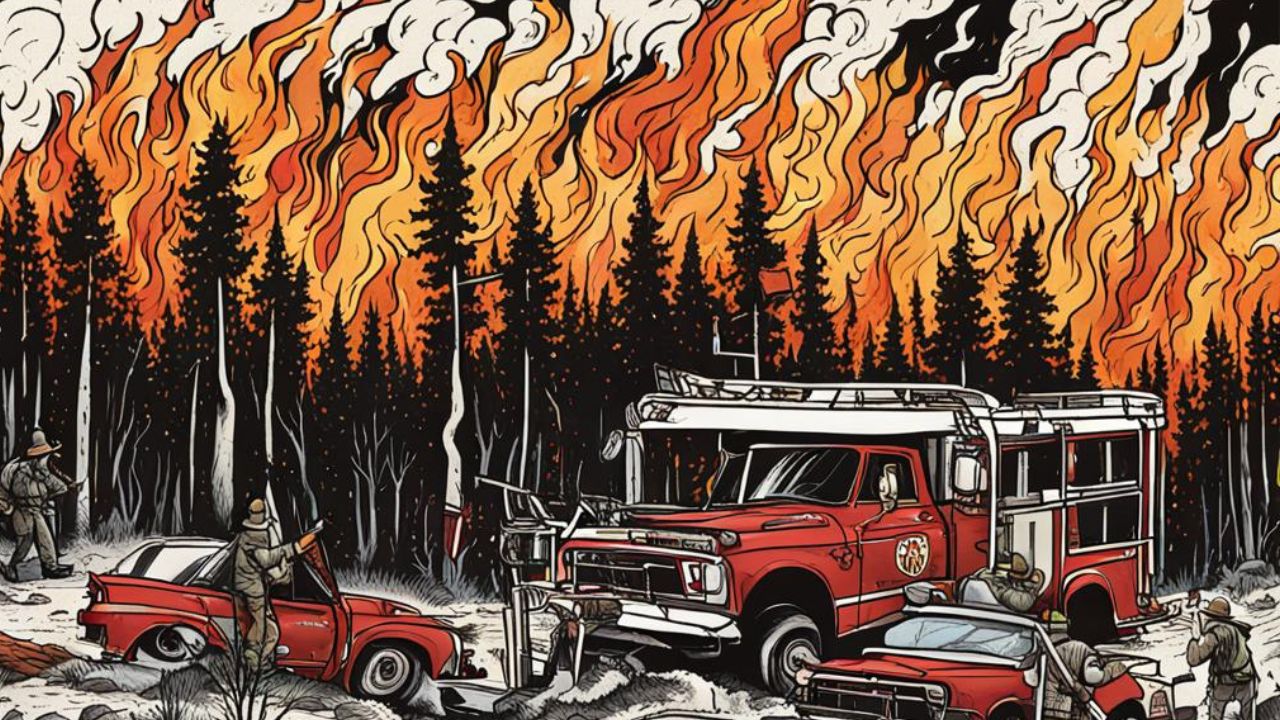In an era marked by escalating climate crises, Europe finds itself at a critical juncture. The recent surge in extreme heatwaves, droughts, wildfires, and flooding has illuminated the urgent need for decisive action. Against this backdrop, the European Environment Agency (EEA) unveils its inaugural European Climate Risk Assessment (EUCRA). The report outlines the pressing challenges facing the continent but also delineates vital policy priorities for climate adaptation.
With Europe’s policies trailing behind the accelerating climate risks and many regions, particularly Southern Europe and coastal areas, facing imminent threats, the findings serve as a stark reminder of the imperative for action.
The report identifies 36 major climate risks across critical sectors and highlights the imperative for urgent action, it calls upon policymakers to prioritize resilience-building measures.
As snow-capped mountains and frost-covered landscapes define the allure of winter tourism, the sector faces an existential threat from climate change. With rising temperatures and shifting weather patterns, the very essence of winter tourism hangs in the balance. However, proactive measures can mitigate these impacts and ensure the sustainability of this cherished industry for generations to come.
The Threat to Winter Tourism
Climate change poses multifaceted challenges to winter tourism:
- Decreasing Snowfall: Warmer temperatures lead to reduced snowfall and shorter snow seasons, diminishing the quality and quantity of snow for skiing, snowboarding, and other winter sports.
- Melting Glaciers: Glacial retreat not only alters mountain landscapes but also affects the availability of natural snow reservoirs critical for winter sports resorts.
- Unpredictable Weather: Extreme weather events such as heavy rainfall and temperature fluctuations disrupt operations, causing uncertainty for businesses and visitors alike.
- Environmental Impact: The carbon footprint associated with travel and energy consumption in winter tourism exacerbates climate change, creating a feedback loop of environmental degradation.
Steps Towards Sustainability
- Embrace Renewable Energy: Transitioning to renewable energy sources such as solar and wind power reduces the carbon footprint of winter resorts, mitigating climate change while ensuring operational sustainability.
- Promote Sustainable Practices: Encourage eco-friendly practices among tourists and businesses, such as waste reduction, energy-efficient infrastructure, and responsible water usage.
- Diversify Offerings: Expand winter tourism offerings beyond traditional snow-based activities to include year-round attractions such as hiking, mountain biking, and cultural experiences, ensuring resilience against climate variability.
- Invest in Snowmaking Technology: Innovative snowmaking technologies can supplement natural snowfall, extending the winter season and enhancing snow quality, thereby safeguarding the viability of winter resorts.
- Collaborate for Conservation: Forge partnerships with environmental organizations and local communities to preserve natural habitats and biodiversity, ensuring the long-term sustainability of winter tourism destinations.
- Raise Awareness: Educate tourists and stakeholders about the impact of climate change on winter tourism and the importance of sustainable practices in safeguarding the industry’s future.
- Adopt new technologies: Using the Metaverse to create new forms of tourism and gamified tourism offerings can provide alternative revenue generating opportunities and enhance existing tourism services.
Conclusion
Winter tourism is facing unprecedented challenges from climate change. However, by prioritizing sustainability and embracing innovative solutions, we can protect this cherished industry while preserving the beauty of winter landscapes for future generations. Together, let’s embark on a journey towards a more resilient and sustainable future for winter tourism. As the world grapples with the specter of climate change, the time for action is now, lest we jeopardize the very foundation of our sustainable tomorrow.
Join us to discover alternative tourism offerings and ways that advanced technologies can help to enhance existing tourism products.

